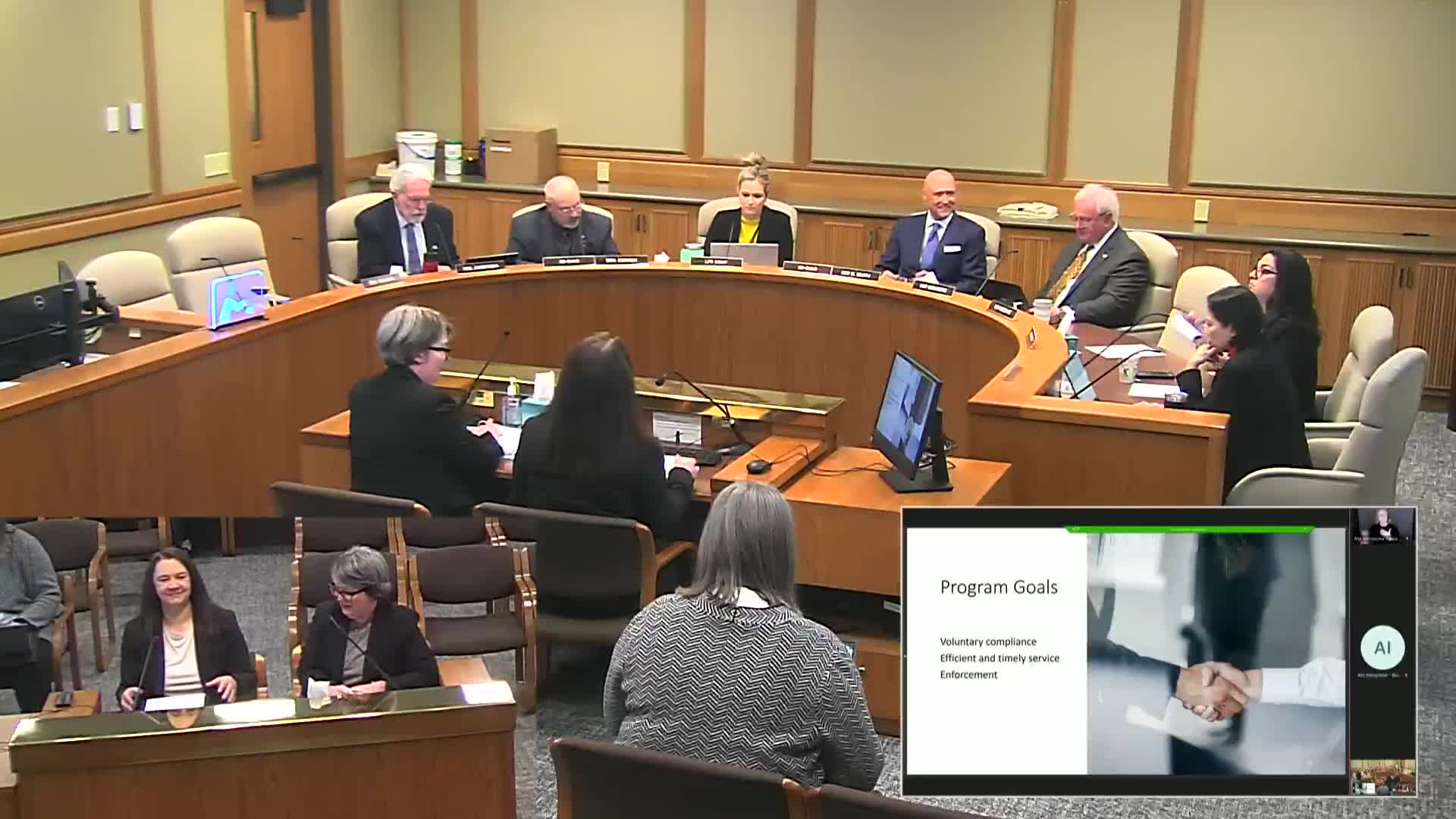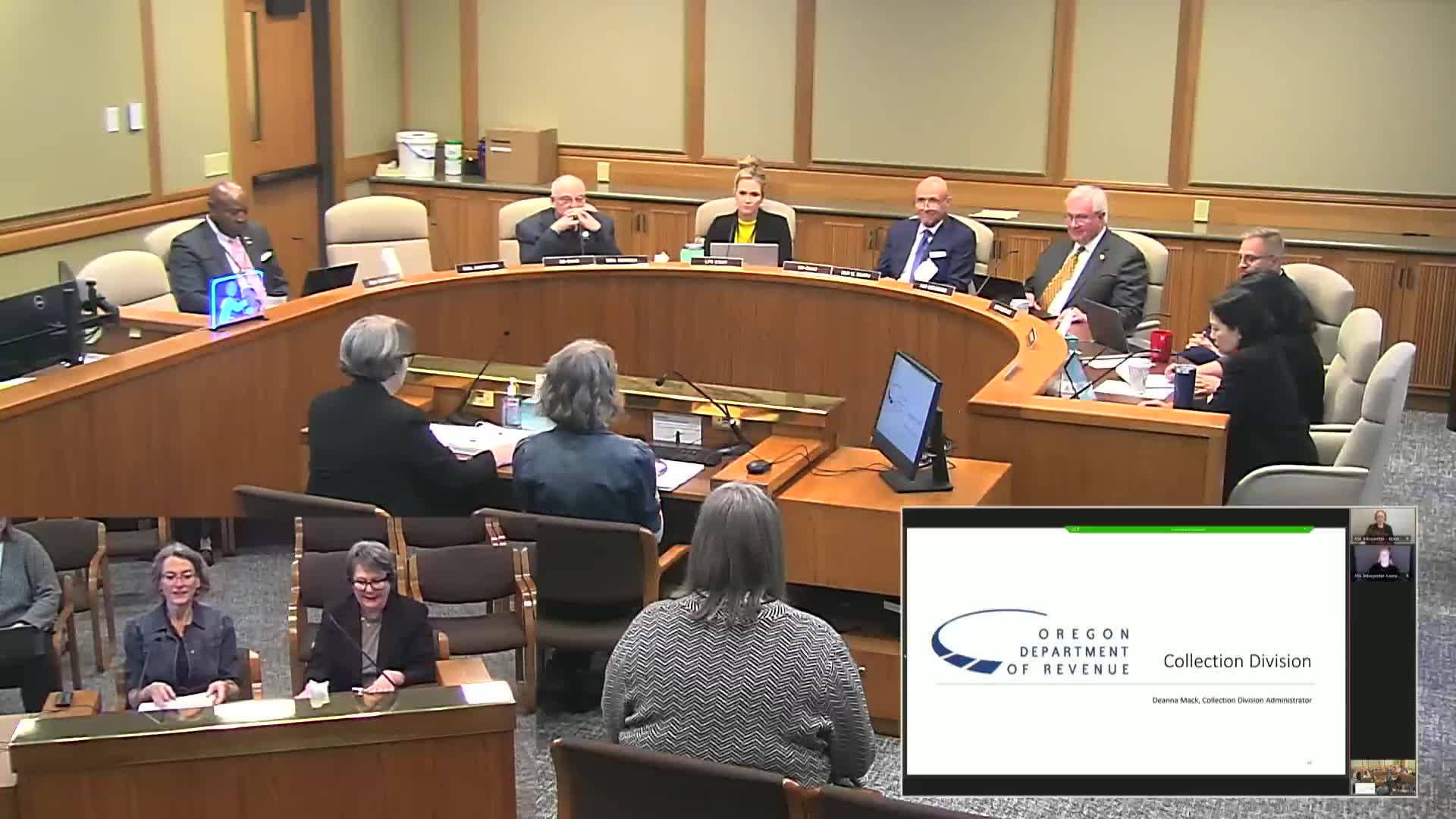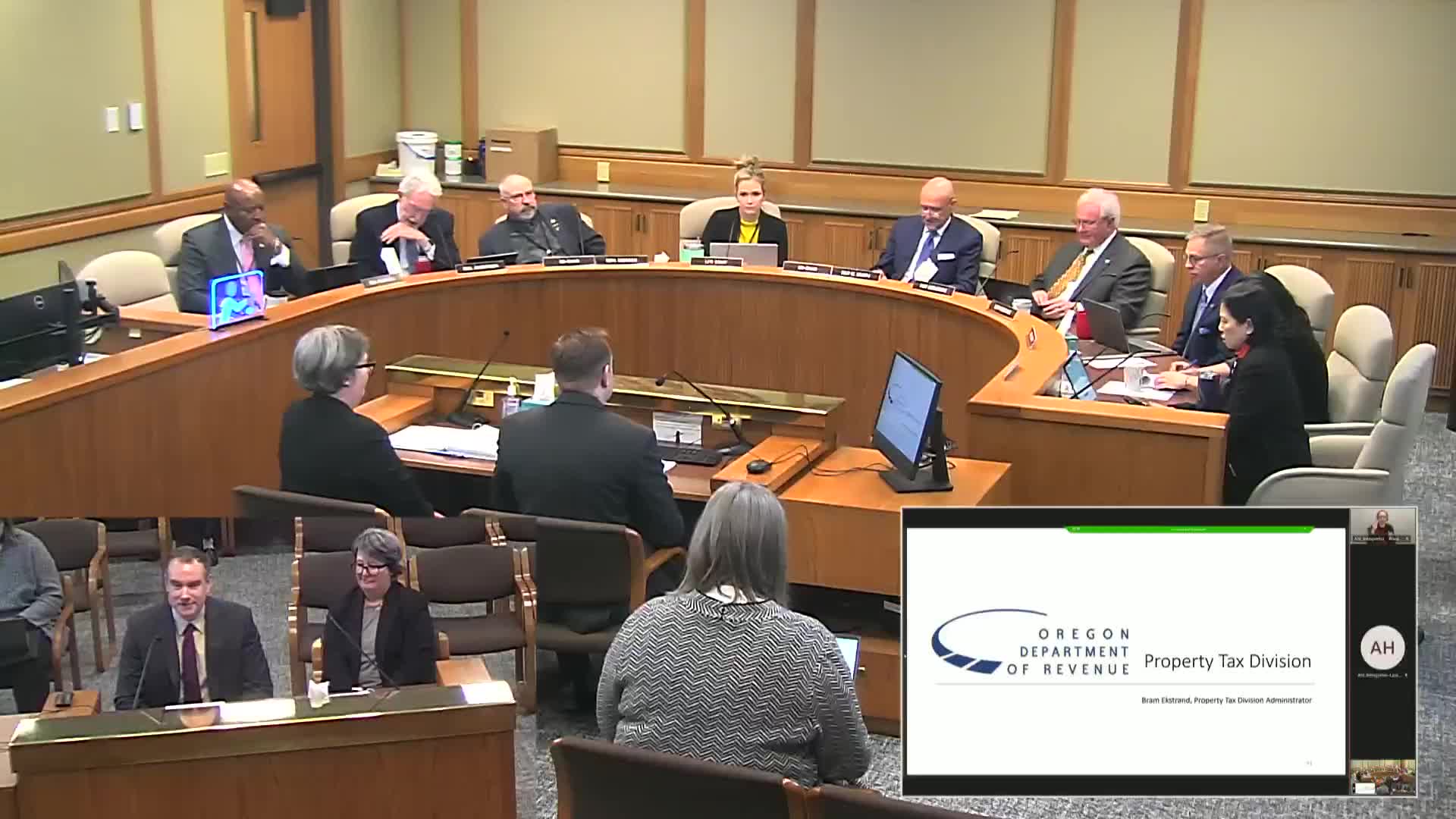Article not found
This article is no longer available. But don't worry—we've gathered other articles that discuss the same topic.

Oregon Department of Revenue business division cites enforcement gains, lodging-tax challenges in budget briefing

DOR collections division reports $1.68 billion inventory, spike in automated write‑offs and cancellations

